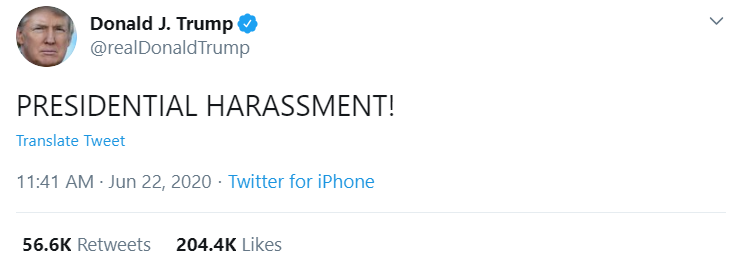Jdsizzleslice wrote:Dukasaur wrote:Not sure why you're surprised.
When new studies come out with promising results, the media usually gives them the benefit of the doubt and publishes them uncritically. Later, when they turn out to be wrong, the articles have to be corrected or retracted to reflect the new understanding.
I remember when the Paris study first hit the news. A lot of people were excited about the possibility. But within a few days, as the refutations piled on, the excitement fell away.
What exactly surprises you about any of this?
My surprise is directed towards the original, unedited article that CNN posted, where they say that hydroxychloroquine may be beneficial.
Dukasaur wrote:When new studies come out with promising results, the media usually gives them the benefit of the doubt and publishes them uncritically. Later, when they turn out to be wrong, the articles have to be corrected or retracted to reflect the new understanding.
I remember when the Paris study first hit the news. A lot of people were excited about the possibility. But within a few days, as the refutations piled on, the excitement fell away.
The problem I have is multi-fold here:
- The update to the article came out around 14 hours after it was originally posted. We see the current update was 1:31 PM EST, while the previous update from Tim Pool's video shows a time of 0334 GMT (11:34 PM EST). Not nearly enough time to "discredit" this study.
- Two studies have been retracted related to hydroxychloroquine. This study has yet to be retracted.
- The update provided no evidence to prove the study incorrect, but added "other researchers" have their doubts. Changing an article to include "doubts" doesn't add any facts, but instead adds opinions that have yet to be substantiated. I see this as a case of political framing. The original article I believe was a fine article. All it stated was that there was a new study and the implications of the study. Then, the new and edited article changed that narrative to include opinion from other researchers and framed the story to make it seem as if the new study is not as impactful or important. It's pretty obvious that at this point we are still learning what we can about the Coronavirus and drugs that will help improve people at risk and help them to live. Of course (insert Cenk Uygur meme here) there will be differing studies and there is going to be a "dispute" as to why the study may or may not be correct, but why change the article to add opinion? Clear case of framing to me.
Well, I can see your point.
Political spin is a plausible explanation for the change. Whether it is
the explanation or not, I can't say. I can certainly see an alternative theory which seems more likely to me, but without being a mind-reader or having inside information, I can't say that for sure.
My first thought was that the backtracking was purely a liability decision. I'm sure you've heard about how after chloraquine was first publicly discussed, there were quite a number of cases of people taking the drug without medical supervision, at least two of whom died. I can certainly see an internal debate at CNN, with someone there saying, "Guys! You're going to start a new round of people taking this shit without a doctor's advice! Best tone it down a bit." We live in a very risk-averse society, and liability is king. In a world where chain-saws have to carry a warning label "do not attempt to stop chain by hand", I can see an editor being very sensitive to accusations that his site encouraged people to take an unproven drug which killed them.
We may indeed find that, in specific circumstances and in conjunction with other therapies, chloraquine can be useful in treating some cases of Covid. That will never mean that it's a good idea for people to start self-medicating with it in the absence of medical supervision. It's a powerful drug with serious and potentially fatal cardiac side effects.
So, to me, liability seems like a more likely explanation for the backtrack than does political spin. But without real evidence, I'm not going to tell you that your theory is wrong.
It's true that 14 hours is not enough time for a formal refutation to emerge, but it
is enough time (in the Internet Age) for a great many comments to come pouring in, at least some of which would have been from experts, which may have tipped the balance in the editor's mind.
Here's an example of something that an expert raised.
"Finally, concomitant steroid use in patients receiving hydroxychloroquine was more than double the non-treated group. This is relevant considering the recent RECOVERY trial that showed a mortality benefit with dexamethasone." The steroid dexamethasone can reduce inflammation in seriously ill patients.
The authors of the Detroit study apparently did not attempt to filter the use of steroid therapies in their published results. They did with azythromicin, showing results for 'hydroxychloroquine alone, hydroxychloroquine plus azithromycin, and azithromycin alone'. Why did they not do the same with the steroid therapies they were apparently using with these patients? At the very least, I would have expected a comparison of 'steroids alone, hydroxychorolquine plus steroids, and hydroxychloroquine alone'. At best, the patient groups should have been controlled for approximately equal steroid use. I find this a very strong criticism, one that calls the results of the study into question. I agree with whomever made the decision to reopen the article that they would have been remiss not to mention such red flags.






